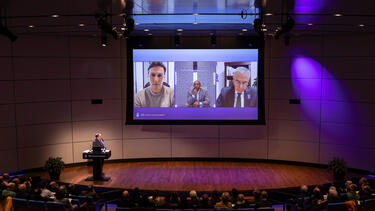Jeffrey A. Sonnenfeld
A Divided America Emboldens Putin’s Aggression
Alexei Navalny’s death is another sign that Russia is testing the limits of the West—and the U.S. is failing that test, write Prof. Jeffrey Sonnenfeld and co-author Steven Tian.

What the U.S. Has to Gain from Supporting Ukraine
Prof. Jeffrey Sonnnenfeld and co-author Steven Tian write that spending on weapons and aid boosts the U.S. economy, strengthens the NATO alliance, and weakens the Russian war machine.
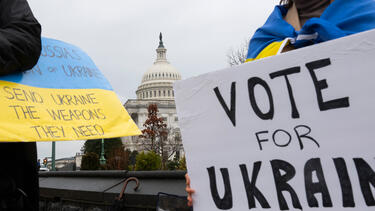
How Connecticut Elevated Its Business Climate
Connecticut turned itself into a destination for new businesses by prioritizing business development and inviting input and help from the private sector, write Prof. Jeffrey Sonnenfeld and three other leaders of AdvanceCT, the state’s business attraction and retention engine.

How Boeing Can Restore Trust
The blowout of a door plug on an Alaska Air 737 MAX 9 earlier this month is just the latest incident casting doubt on the safety culture of the aerospace giant. Yale SOM leadership expert Jeffrey Sonnenfeld, a longtime observer of Boeing, and co-author Steven Tian offer a series of steps to rebuild its internal processes and win back the trust of airlines and the public.

Triumph and Disaster: The Best and Worst CEOs of 2023
Yale SOM leadership expert Jeffrey Sonnenfeld and co-author Steven Tian highlight the three best- and worst-performing CEOs of 2023—and hint at what’s ahead for each of them in the new year.
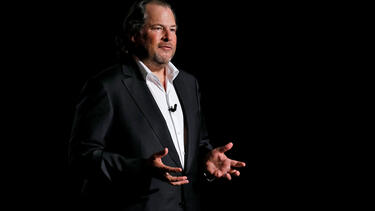
No, the Business Exodus from Russia Was Not a Bonanza for Putin
Yale SOM’s Jeffrey Sonnenfeld and Steven Tian, with Tymofiy Mylovanov and Nataliia Shapoval of the Kyiv School of Economics, respond to a New York Times articles on the effect of the boycott.

The FTC’s Antitrust Overreach Is Hurting U.S. Competitiveness and Destroying Value
Yale SOM’s Jeffrey Sonnenfeld and Steven Tian write that FTC chair Lina Khan’s attempts to block mergers are draining economic value—and consistently failing in court.
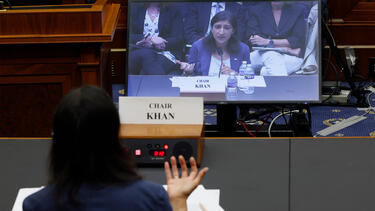
The Israel-Hamas War Reveals the Fundamental Flaws of Social Media
Yale SOM’s Jeffrey Sonnenfeld and Steven Tian write that the viral spread of anti-Semitic and Islamophobic content over the last two months has underlined the failure of social media platforms to control misinformation and hate—and the importance of truth in the face of propaganda.

What Went Wrong at OpenAI?
Days after he was suddenly fired, CEO Sam Altman returned to OpenAI on November 21, and the board that removed him was overhauled. We asked leadership expert Jeffrey Sonnenfeld how the company’s structure and the performance of the board contributed to the chaos.
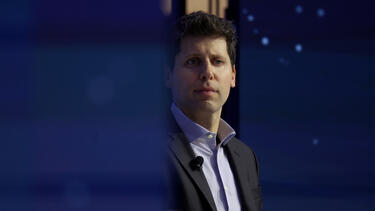
Dialogue About the Middle East Is Possible—Indeed, It’s the Only Way to Peace
A recent event held at Yale showed that discussions among Israelis, Arabs, and other concerned parties can help bring out points of commonality that may be the first steps on a path toward peace, argue Yale’s Jeffrey Sonnenfeld and Steven Tian.
